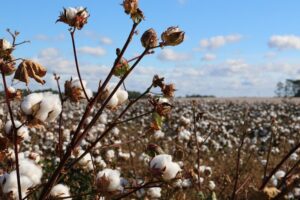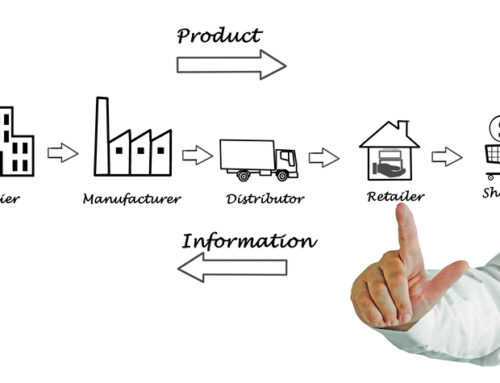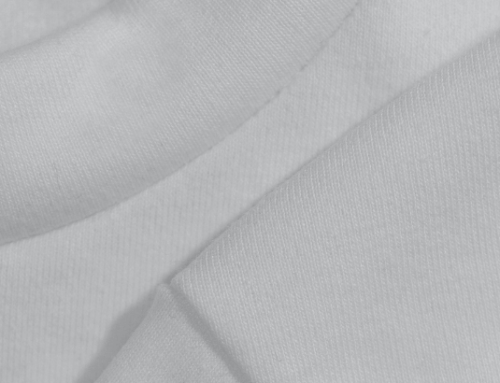
Photo by Trisha Downing @tgdwinos
From maxi dresses to our favorite t-shirt and jeans, we love cotton for its durability, versatility, and comfort. When the label reads 100% cotton, we feel like we’re making a wise choice, a natural choice. Moreover, all parts of the cotton plant are used in one form or another – the lint or fibers make cloth, the seed is used for cooking oil and livestock feed, and the stems and leaves are plowed under to replenish the soil.
But as is the case with many fabrics, not all cotton is created equal, and some of it can be downright bad for us and for the planet.
But don’t throw in the (cotton) towel just yet! There’s still one GREAT reason to add that cotton jumpsuit to your wardrobe this spring. Read on to learn about the effects of cotton production, and how you can still sport the latest style, ethically and responsibly.
Cotton Plants Stress the Environment
Though it is by nature a biodegradable product, cotton is environmentally intensive to cultivate, requiring a large amount of water throughout the growing process, about 10 gallons per plant. It can take up to 2,700 liters of water to grow enough cotton to make a single t-shirt! (For comparison, the average person only drinks 183 gallons a year.)
Moreover, as the demand for cotton remains high, many farmers resort to growing the same crop year after year. This practice, known as monoculture, leads to soil erosion and increases outbreaks of harmful pests and disease that can decimate crops.
Cotton Cultivation Uses Harsh Chemicals
According to Fashion For Good, conventional cotton production accounts for one sixth of all pesticides used globally. Three of the most hazardous insecticides, as determined by the World Health Organization, are commonly used in cotton farming.
Fertilizers used to grow cotton are also detrimental to the environment, running off into freshwater habitats and seeping into groundwater. The Organic Trade Association (OTA) states that it takes a third of a pound of fertilizer to produce a pound of raw cotton; that pound of cotton is then used to make a single t-shirt.
Cotton Contributes to Economic and Societal Problems
As a global commodity, cotton plays a major role in the economic and social development of emerging economies, particularly Central and Western Africa, India, and Pakistan. However, many farmers live below the poverty line, making them the target of unscrupulous middle men and fluctuating markets impacted by climate change and economic shifts. Many farmers resort to using child labor to keep costs low, and impoverished farmers are likely to resort to dangerous pesticides to protect their crops, leading to serious health problems and even death (source: Environmental Justice Foundation).
Further down the production line, textile factory workers face exposure to the same pesticides used in propagation, as well as breathing in cotton dust that is introduced into the air during processing. Harsh chemicals in the form of dyes create an additional hazard for workers, resulting in an unhealthy finished product for the consumer.
Ethical and Responsible Cotton

Photo by Charley Pangus @charleypangus
Fortunately for the fashion minded, there exist better methods of cotton cultivation and production that greatly reduce its impact on people and the environment. Buying from small scale designers that utilize cotton produced in a responsible manner, and researching your labels and clothing retailers allows you to make a conscious choice when it comes to purchasing cotton products.
Organizations like the OTA encourage the growth of organic cotton, which avoids use of GMOs, pesticides, and synthetic fertilizers in favor of traditional farming methods that replenish the soil and protect against insect damage without the use of harmful pesticides.
In the US, OSHA oversees labor laws that protect textile workers, but there are also numerous multinational groups that promote, train, and certify farmers that utilize safer cotton farming practices worldwide. For example, the Better Cotton Initiative encourages a sustainable approach to cotton farming by supporting the three pillars of sustainability: environmental, social, and economic. Participating farmers who adopt these principals receive a Better Cotton license.
Balodana designer Sumissura uses OEKO-TEX certified textiles in all of its garments, and also offers organic cotton as an option in their custom made women’s shirts. Let us help design the perfect dress shirt for you, in organic cotton or sustainably sourced linen!



